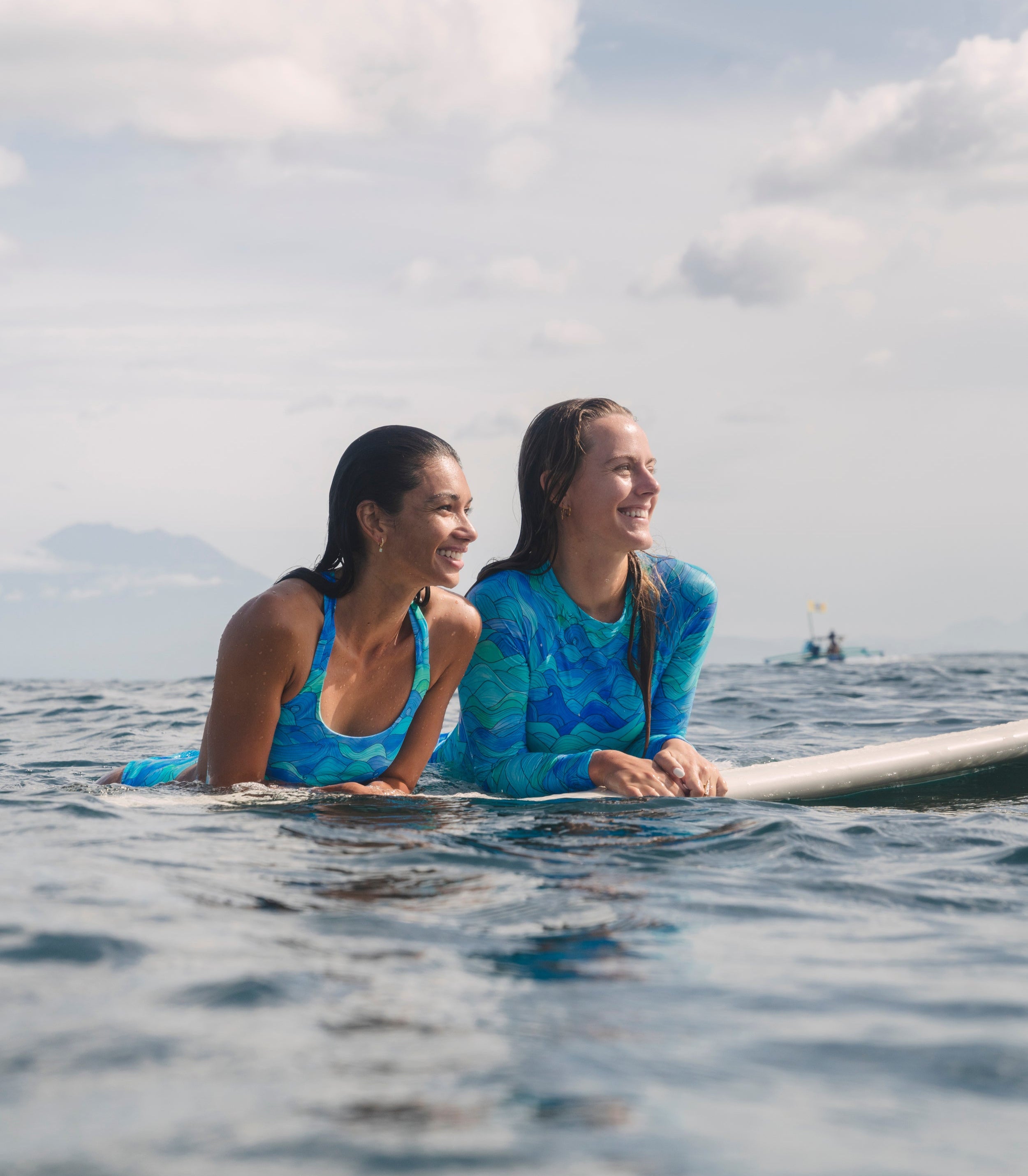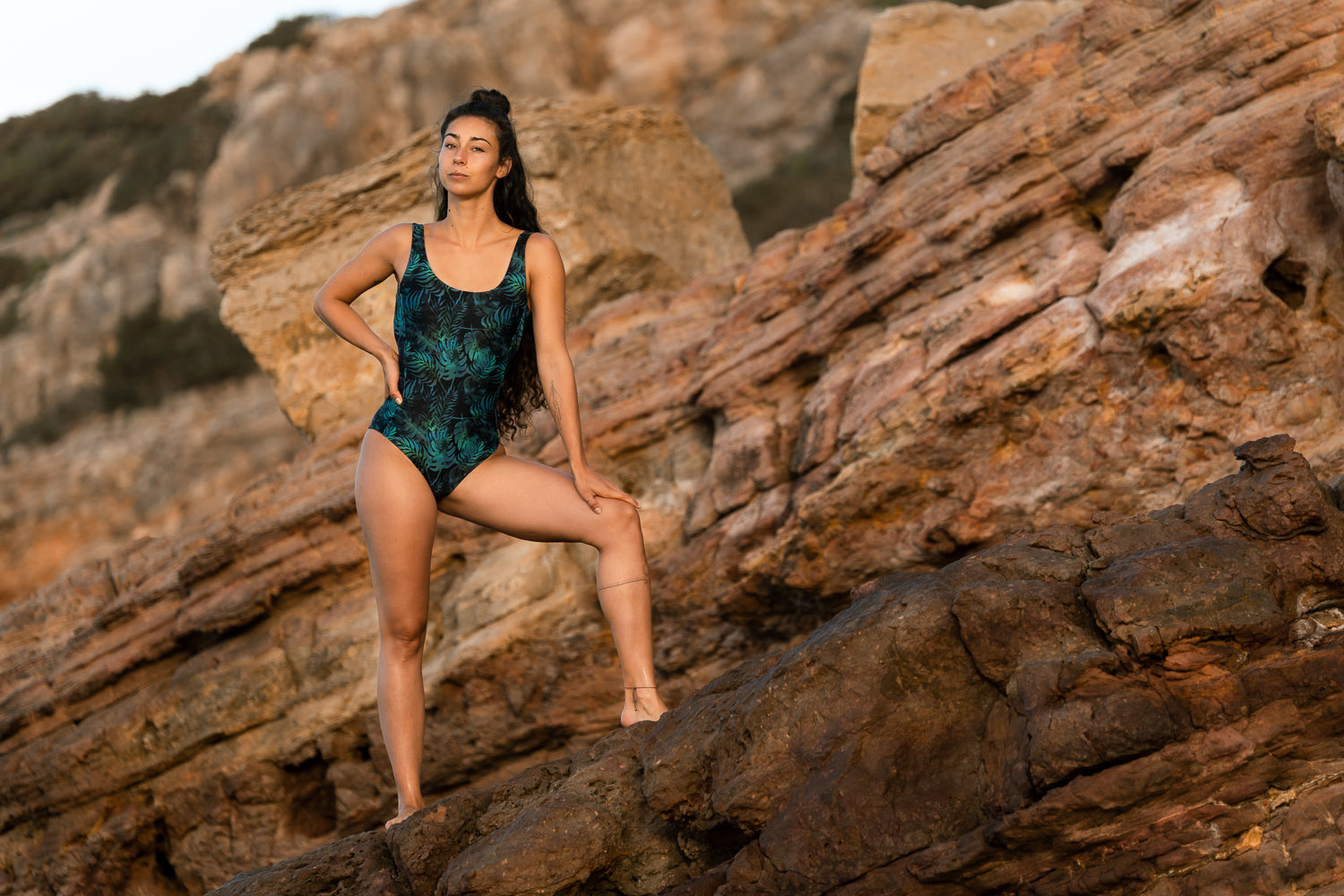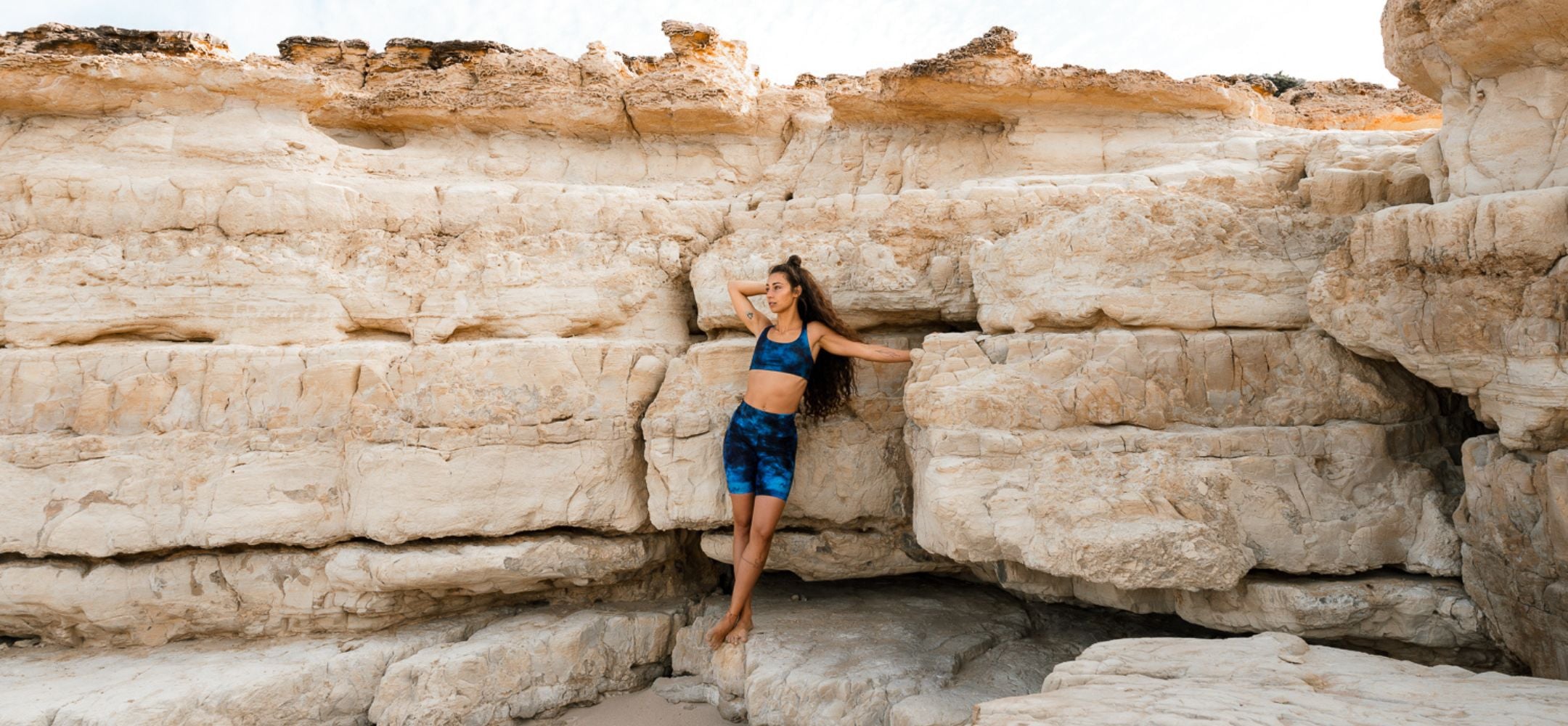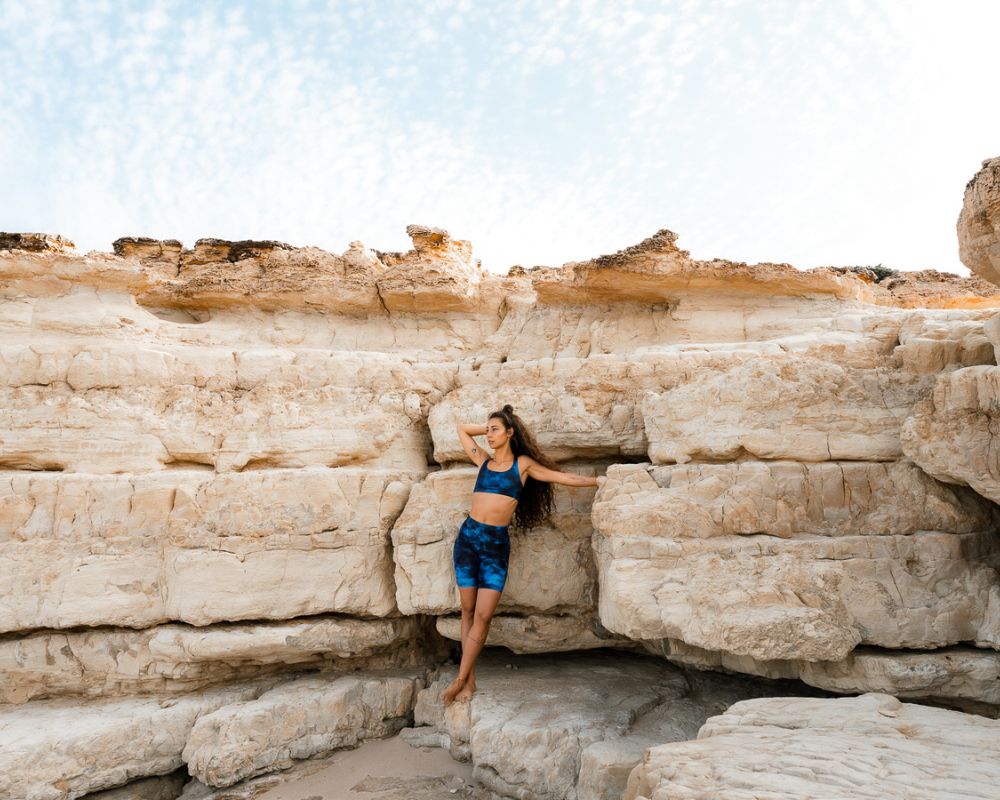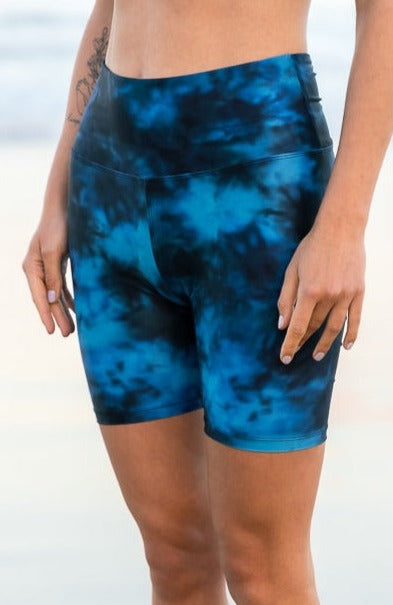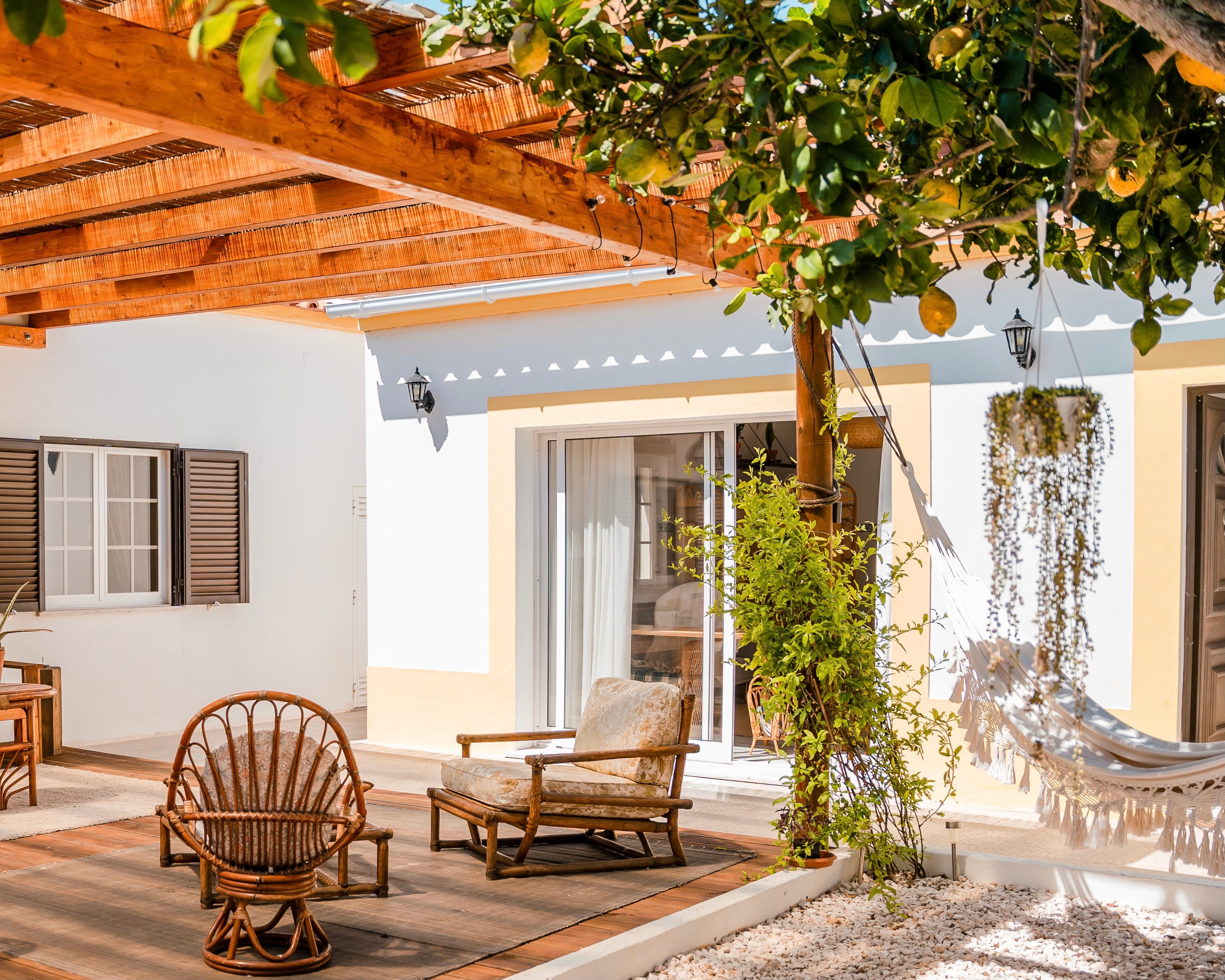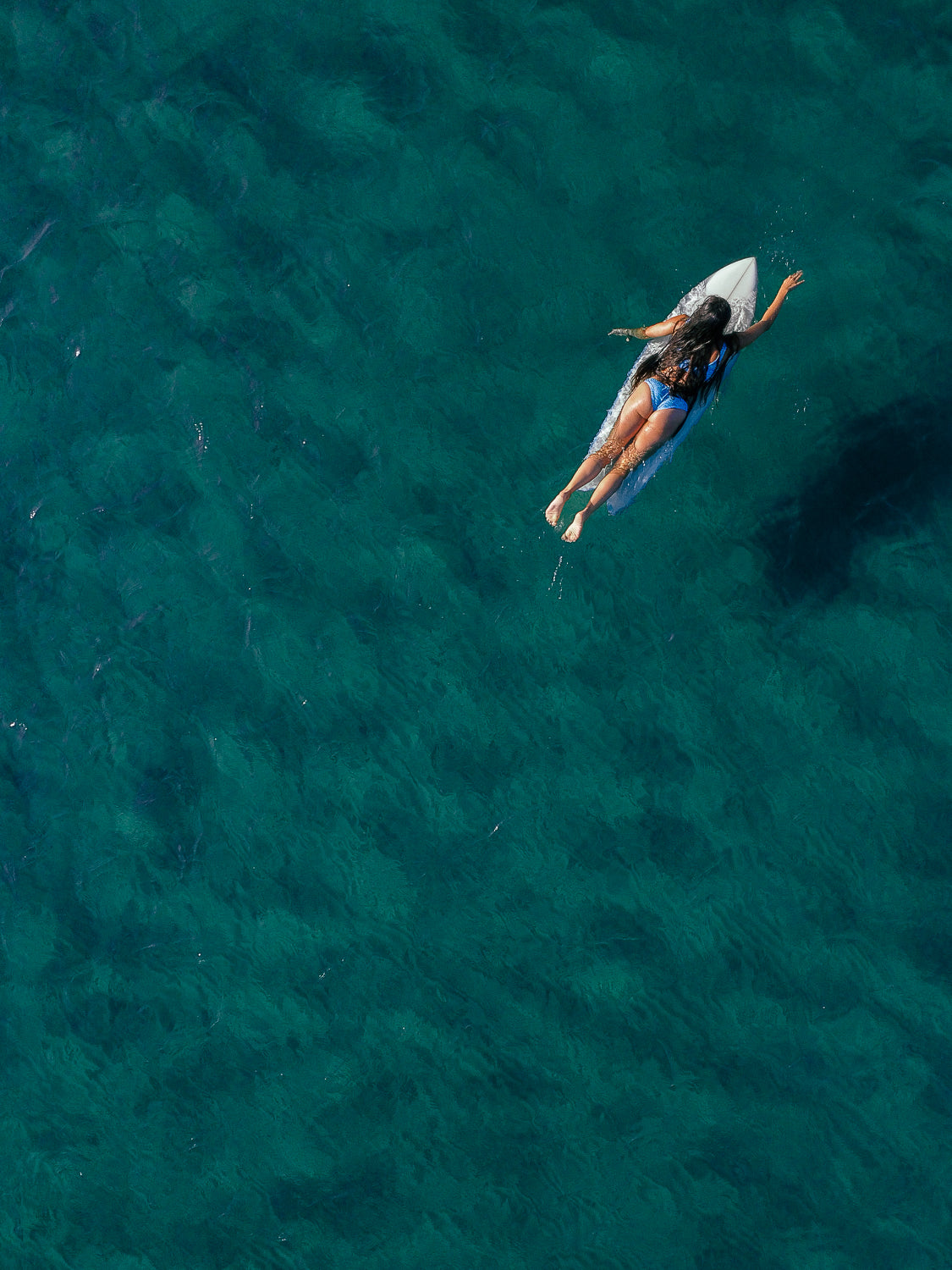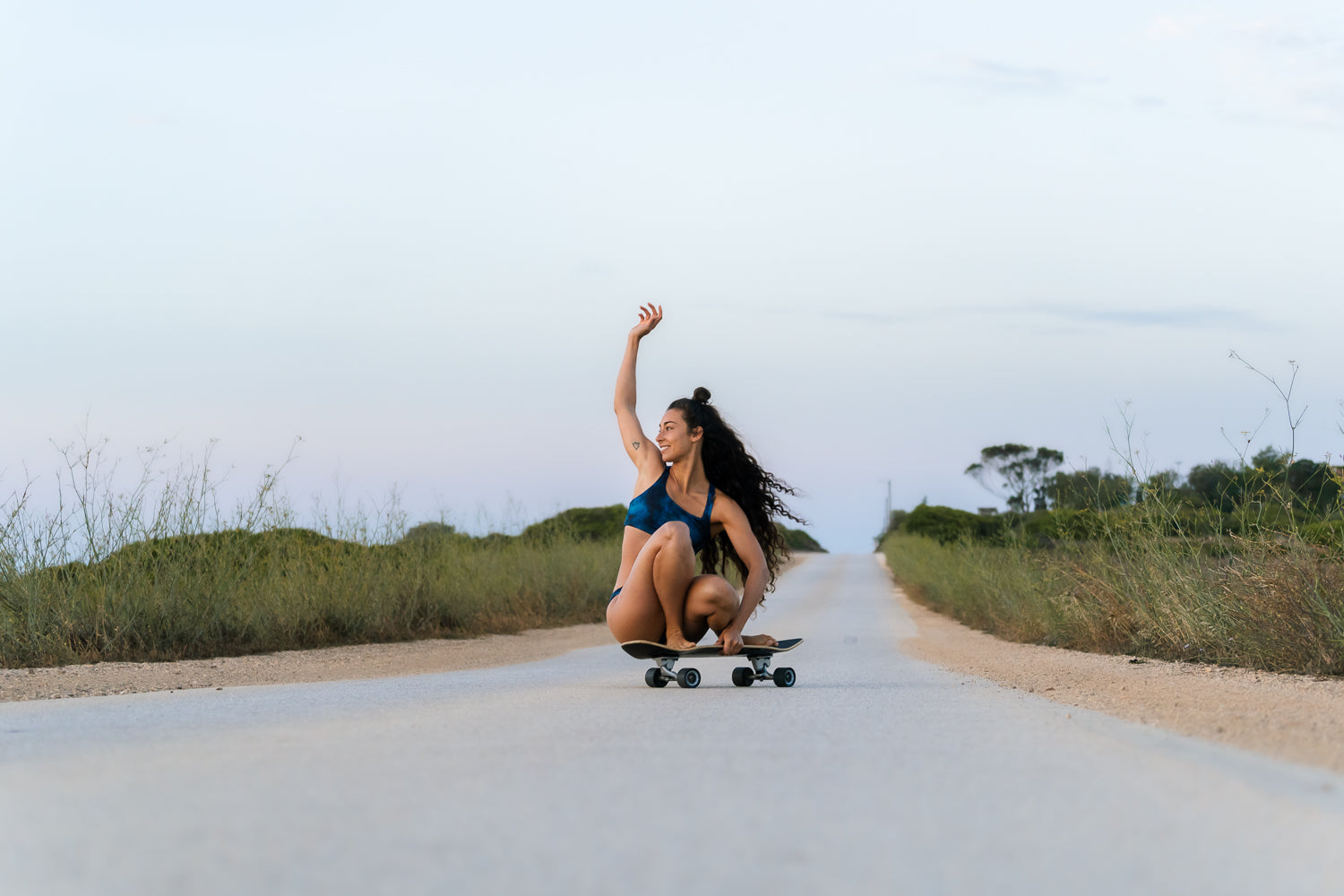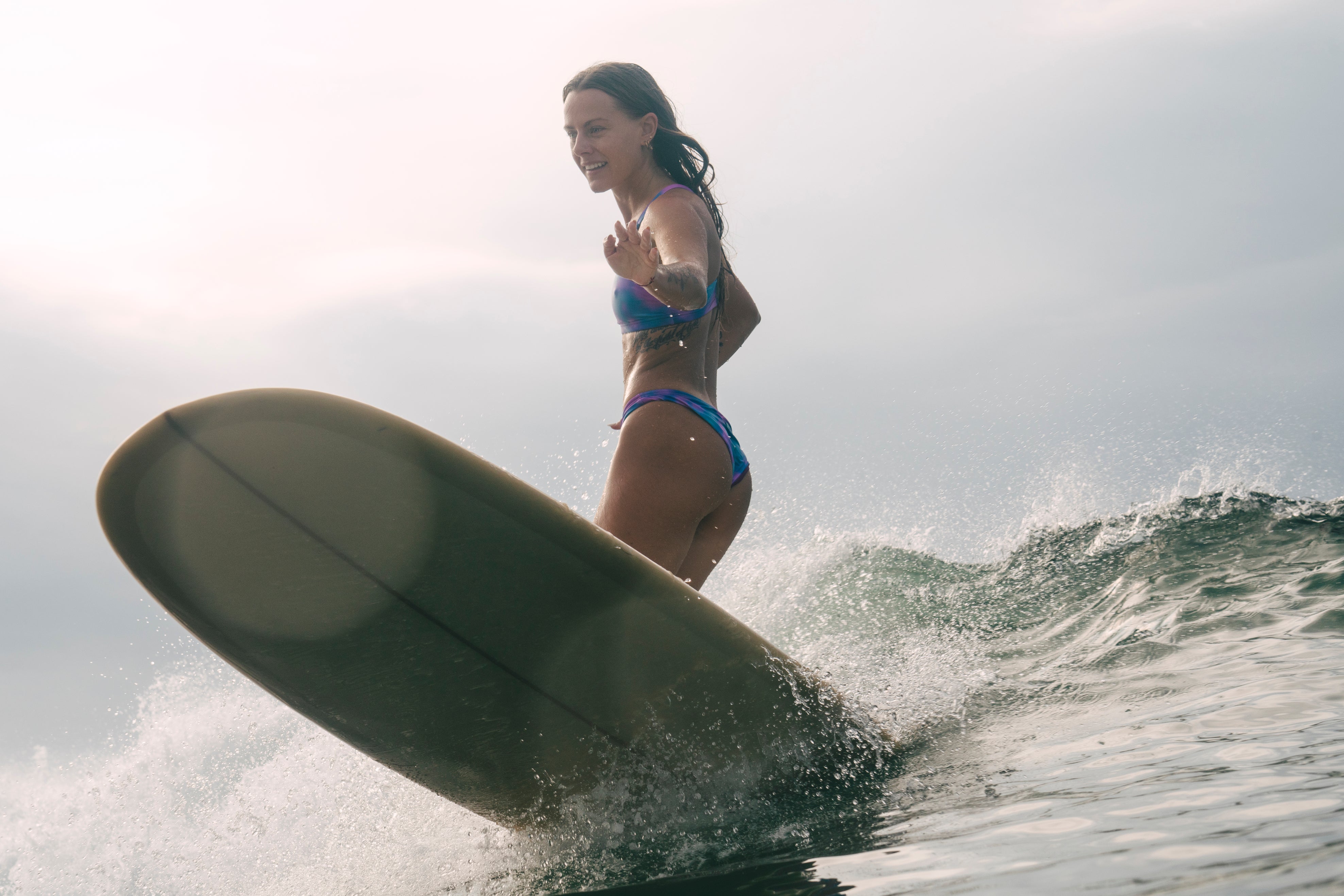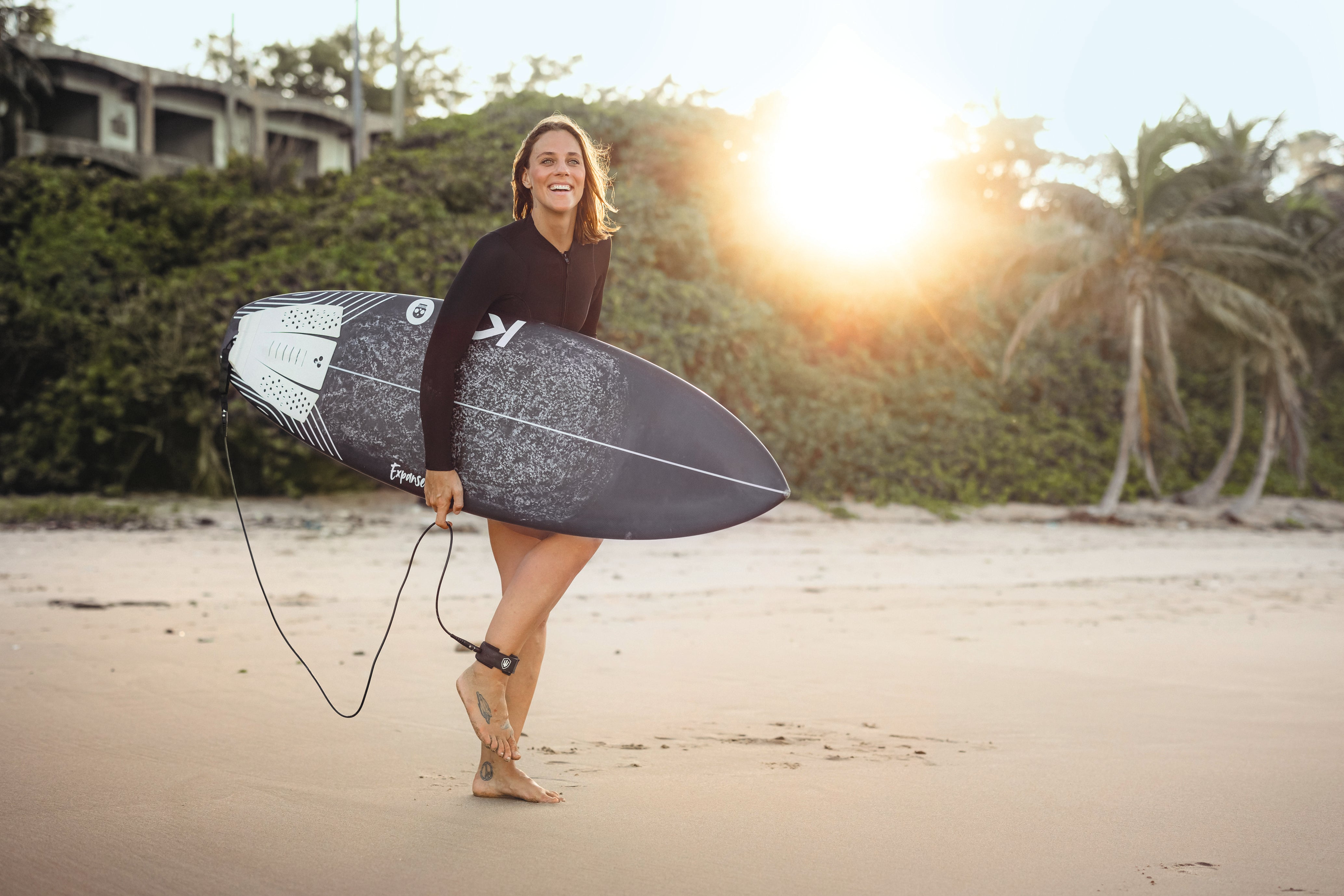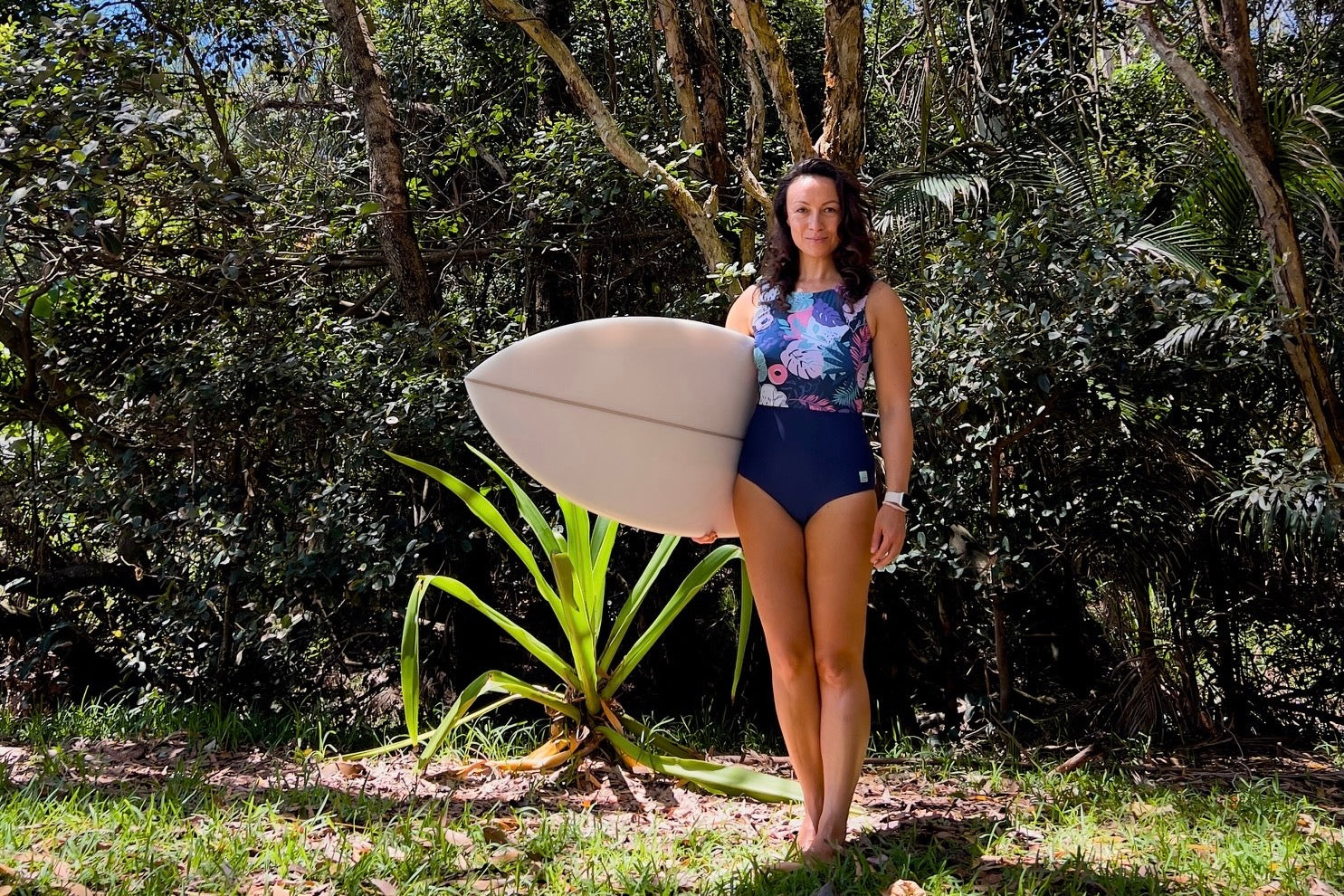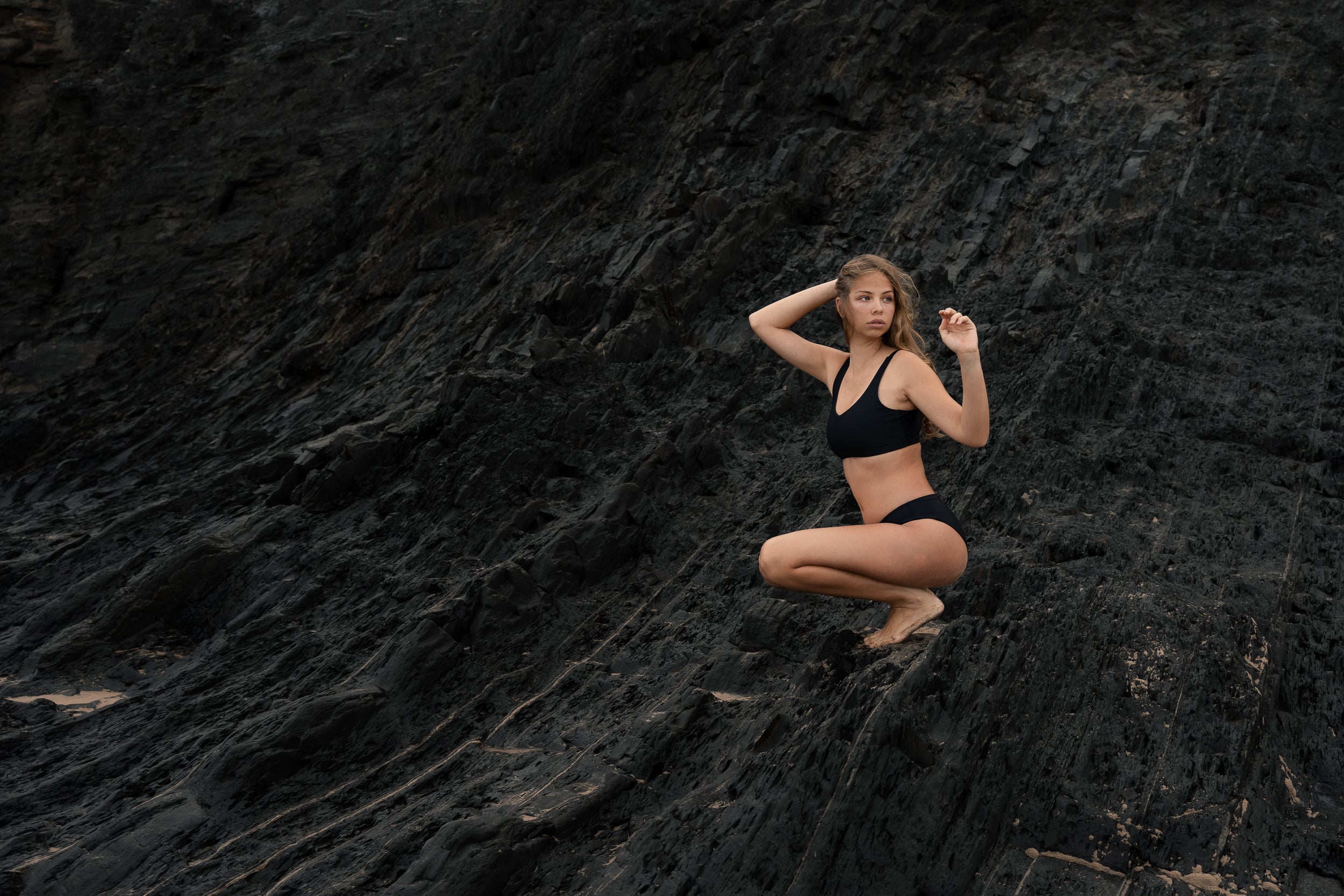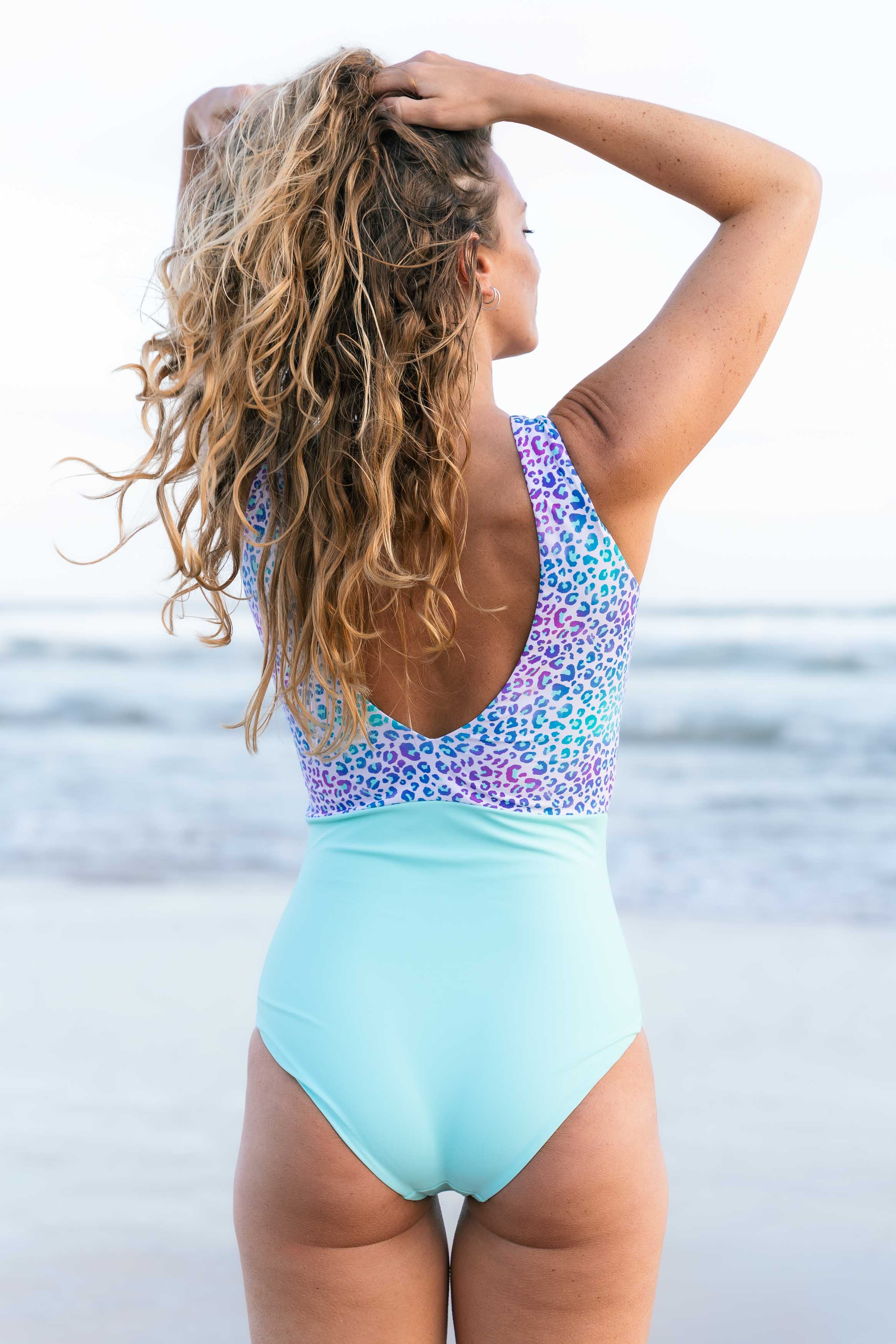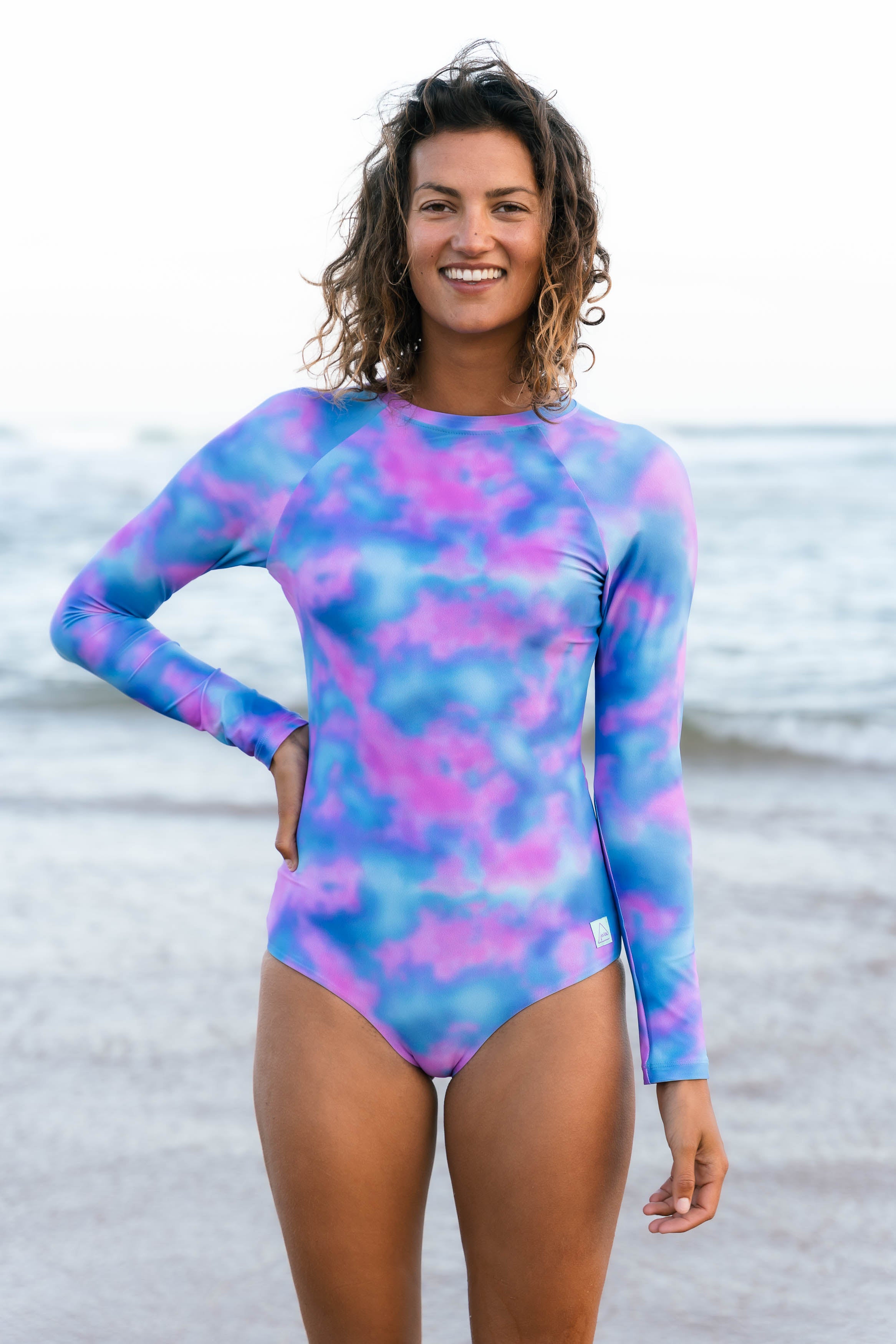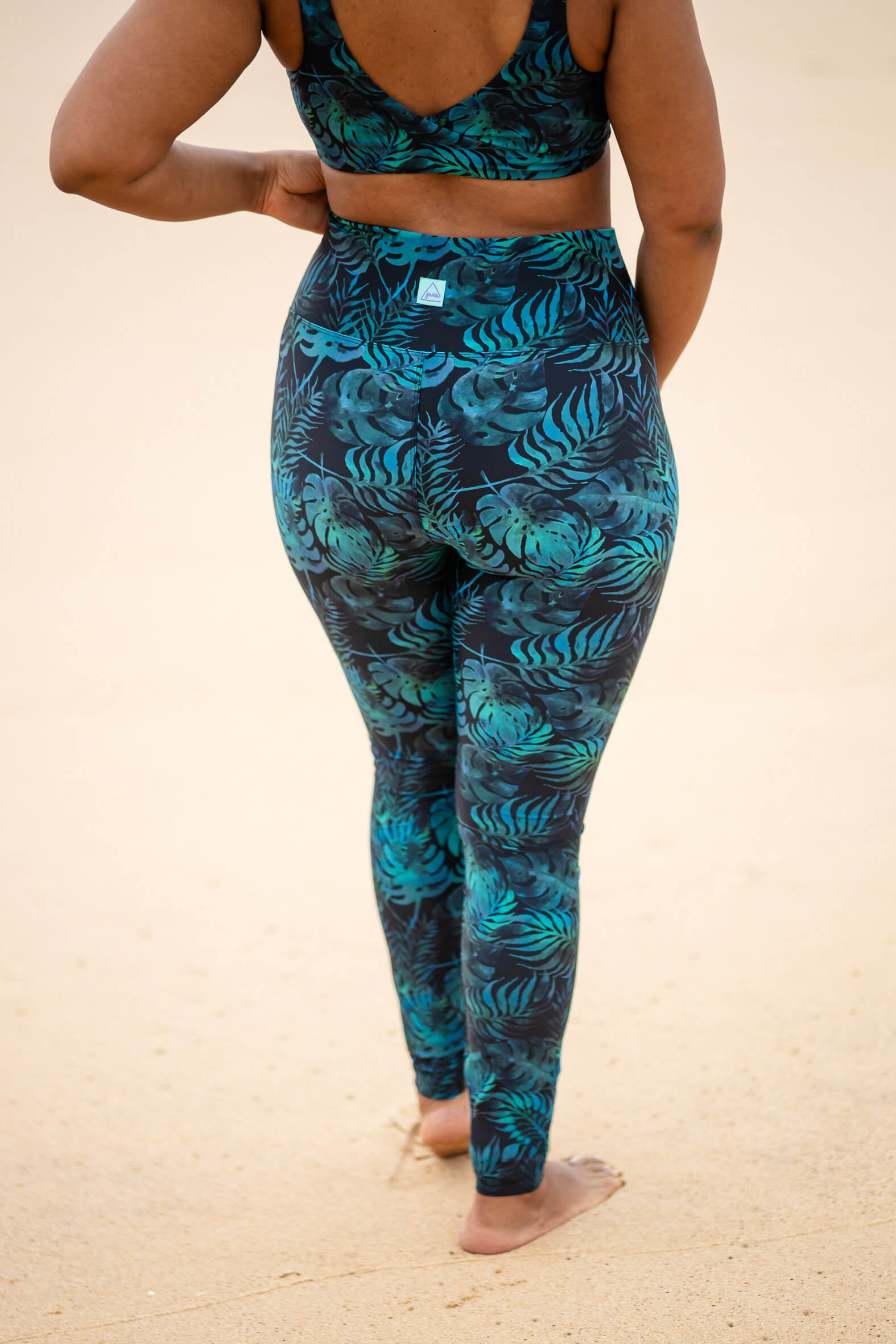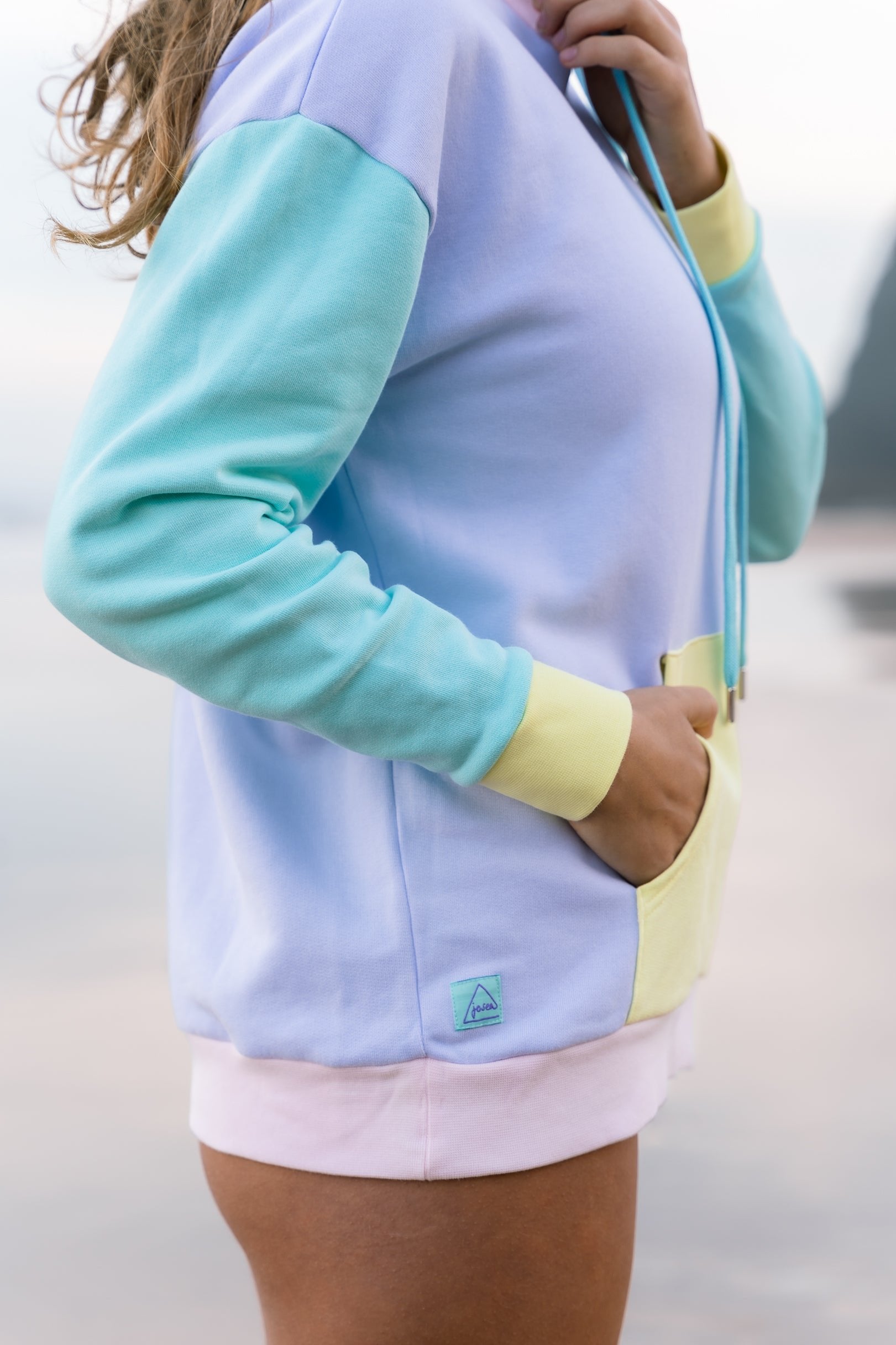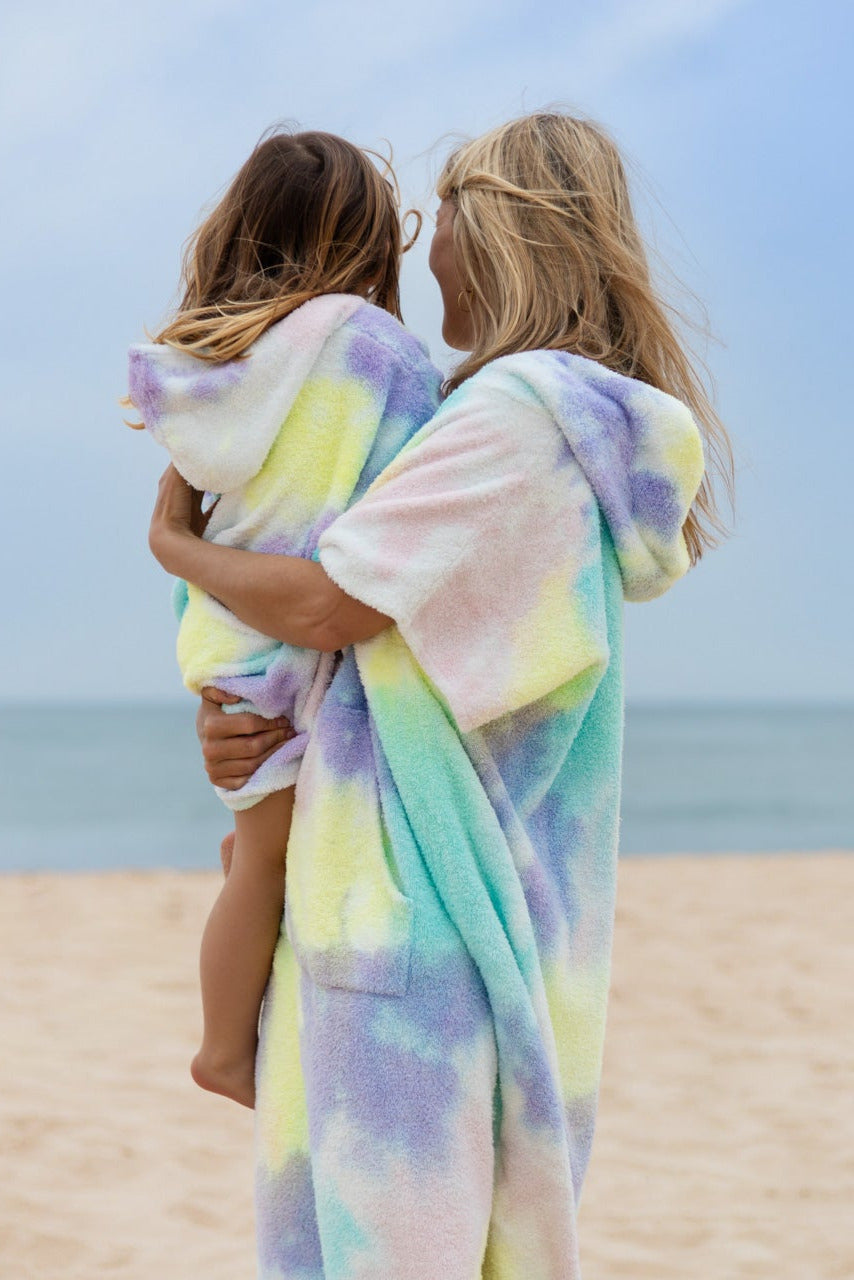About Noemi
We meet Noemi in the backyard of her guesthouse in the small surfing village of Sagres, nestled along the Algarve coast. Amid hammocks and surfboards, a lemon tree with ripening fruit stands in the gravel bed. Just a short stroll from the beach, Noemi and her partner Willy have transformed a neglected vacation home into a surfers' and travelers' haven - the Lemontree Eco Surfhouse.
We speak with her about her journey from a psychology student to a guesthouse owner, delve into the significant topic of sustainability, and explore why sometimes you have to take matters into your own hands.
Originally from Switzerland, Noemi was in the middle of her psychology studies at the University of Zurich when she met Willy during a surf camp stay in Sagres. Willy, who's a skilled surf and ski instructor, was already splitting his time between coastal and mountain life. During her semester breaks Noemi started joining Willy to work at various surf camps across Europe. Yet, the camp work didn't offer them a lasting perspective. They dreamed of creating something of their own, although it remained just a dream for a while.
Sagres, Portugal
"This place has a certain magic, kind of like falling in love. It's hard to explain exactly, but it's there. The ocean breeze, the stars you can see in the night sky, the stunning landscape, and the wind have always given me this feeling of 'I need to come back.'
On moving to sagres
They fell in love with Sagres, a small town at the western tip of the Algarve, once thought of as the end of the world. During a visit to a local ice cream shop, they noticed a handwritten sign in Portuguese on an overgrown neighboring house that said "for sale." Without a financial plan in their mind, they spontaneously arranged a viewing. The house with three rooms and two garages didn't match their vision immediately. But its perfect location near the town and the beach, along with family support, convinced them to buy it. Luckily, they managed to cross the border during the second lockdown and make it to their appointment with the notary just in time.
Nothing indicated that our project would succeed. We were pretty much lacking in everything. None of us had experience in the hotel industry or craftsmanship, and our financial resources were extremely limited. Everything could have fallen apart. But we had a goal in mind and slipped into a mode where we simply got things done.
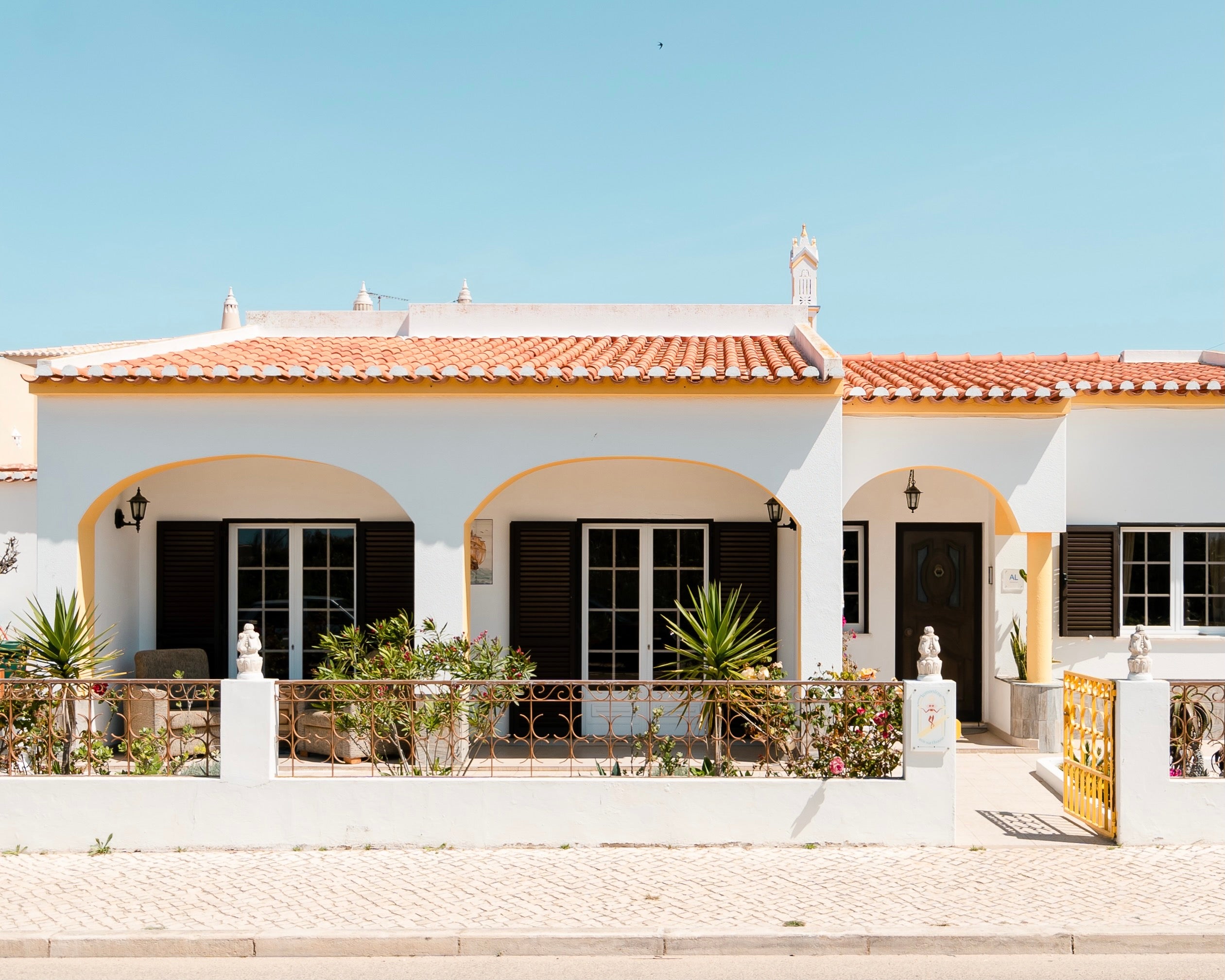
the renovation
The two set up a mattress camp on the garage floor, invited fellow surfers over, and together, they began to transform the house into a heartfelt guesthouse – adopting the principle of "Learning by Doing." Meanwhile, Noemi skillfully balanced renovation tasks with writing her psychology bachelor's thesis. The house renovation became a journey of innovation and repurposing. With a strong sense of sustainability, they aimed to reuse as many old materials as possible.
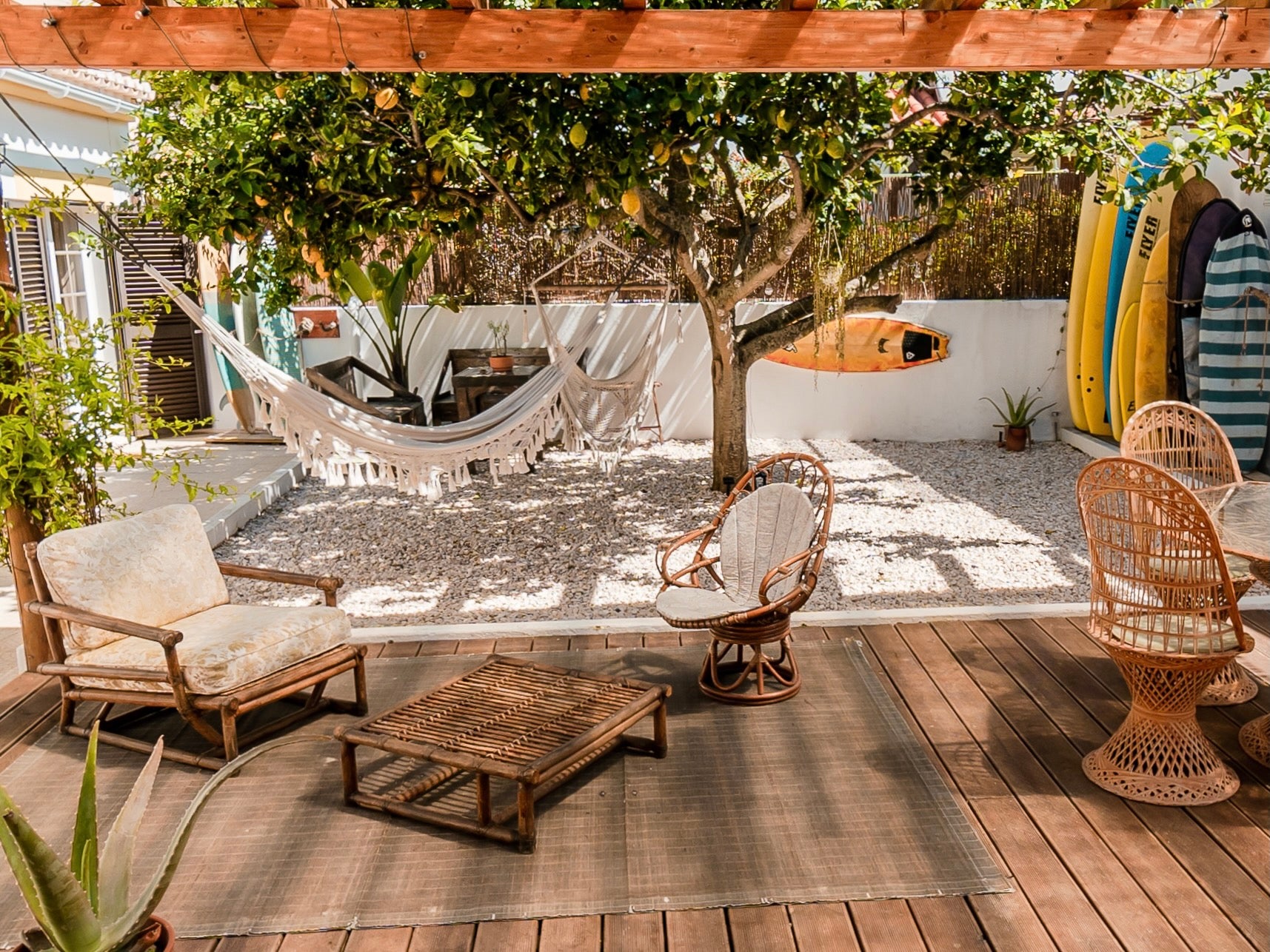
"We dismantled old built-in cupboards and shelves and repurposed the wood to create something new. You find all sorts of doors, drawers, and pieces that were originally something else." After just three intense months, they opened the doors of their lovingly renovated home to their first guests. Today, the house accommodates up to 11 people in three cozy double rooms and a spacious apartment. The space is a mix of a sanctuary and a place for people to come together, giving that feeling of being at home even when you're away from home.
On choosing a sustainable path
"Our aim wasn't to become just another surf camp that goes to the supermarket and gets lots of plastic-wrapped food for guests. When we worked at different surf camps, we saw so much plastic waste being produced week after week because everyone shopped at the supermarket. I never really understood why people didn't work more with local farmers and sellers. So, from the start, we wanted to do things differently. For breakfast, we go to the local market and a nearby farm run by two sisters. We're always trying to find new connections to get our stuff while also supporting someone local. It feels really good to give our guests a breakfast with good products that also support local farmers.”
“Most of our furniture in the house is second-hand and recycled. We installed a great water filter so our guests can drink tap water instead of buying bottled water from the supermarket. It's healthier and also reduces plastic waste. In our house, we also have a little shop where we sell things like photos, essential oils, and sunscreen without harmful chemicals. These are products we believe in and they also help local people. We compost our organic waste and use it to help our small vegetable garden. We try to keep things local as much as we can – for example, we get skateboards and wetsuits for our guests from businesses in Portugal. And we also try to throw away as little as possible. If things break, we fix them ourselves if we can."
On Future Plans and Upcoming Projects:
"We want to give our lives more structure. We like our current way of life, spending summers by the sea and winters in the mountains. Right now, we're working on starting a ski school in Switzerland. In the past few years, we felt that people in seasonal jobs often aren't treated fairly and don't get what they deserve. Since we got the Lemontree House, we've realized that if you're passionate about what you do, stick to your principles, and work hard, even if you're small, you can compete with big companies. Just because you might only have three ski instructors or three or four rooms in your place, it doesn't mean you can't go up against 100-room hotels."

